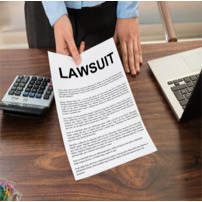When Are Landowner’s Liable?
May 7, 2018 Philadelphia premises liability lawyers represent clients hurt on the premises of another person. What is the landowner liable for exactly and what is the extent of their liability in an accident? Although the general rule of thumb is that landowners are liable, there are exceptions and rules concerning situations that apply.
Philadelphia premises liability lawyers represent clients hurt on the premises of another person. What is the landowner liable for exactly and what is the extent of their liability in an accident? Although the general rule of thumb is that landowners are liable, there are exceptions and rules concerning situations that apply.
Premises liability is very much rooted in why the person was on the property to begin with. It matters whether the person was invited or was a trespasser. An invitee is expressly invited to the property or it is implied that they can come onto the property. For example, a neighbor who has dropped off mail that was mis-delivered, a delivery person, or a contractor would be an invitee. A person invited for a social visit is also an invitee. A landowner owes this person the greatest duty of care to keep the property reasonably safe or provide notice of an unsafe condition that the owner knows or should reasonably know about.
A licensee is someone who has the implied permission to enter the property. The landowner owes a licensee less duty of care, but if there is a dangerous condition on the property, they have a duty to warn those with signage. A trespasser is not authorized to be on the property. Usually, the property owner has no duty of care to this person, unless it is a child. Property owners should not have an open, attractive nuisance, or something that a child would be attracted to, on their property unless it is locked or fenced in. Usually a pool falls into this category and many towns have ordinances that require property owners to either fence in a pool or have a lock on the fence in some fashion. This would make it difficult for the child to enter without permission.
What Type of Accident Can Occur?
Common types of accidents that can occur on a private person’s property can include animal or dog bites, slip and fall accidents, negligent or inadequate security from dangerous objects or tools, or inadequate maintenance of the property. Examples include rusty farm machinery that could cut people or dilapidated structures that could fall. If firearms are not secured appropriately and are in plain view on the property, this could be considered a hazard. A neglected tree house could attract children and should be secured or destroyed.
To determine potential liability, it must first be determined who the injured person was in relationship to the property owner, whether the owner knew or should have known about the condition which may have caused or contributed to the accident and whether the owner had any duty of care to remedy or warn of the condition prior to the accident. Certain courts may determine that the injured person also contributed to their own injury and this could affect the amount of the award.
Philadelphia Premises Liability Lawyers at Nerenberg Law Associates Help with All Aspects of Premises Liability Cases
If you have experienced a slip and fall accident or have questions regarding a premises liability issue, the Philadelphia premises liability lawyers at Nerenberg Law Associates can help you assess the strengths of a legal claim that you wish to bring after an accident. We are in Philadelphia, Pennsylvania and serve clients from the surrounding areas. Contact us online or call us to provide a legal evaluation of your case today at 215-569-9100.








